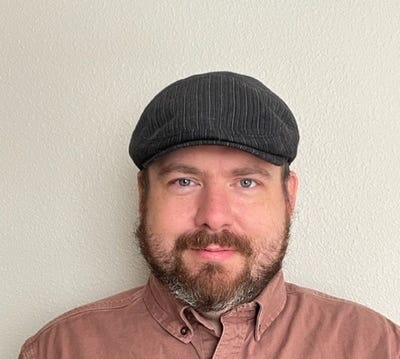
According to Chris Horan, chief technical operations officer at Artiva Biotherapeutics, therapies based on NK cells can provide a cost-effective alternative to CAR-T therapies for certain applications thanks to high scalability and an improved safety profile.
Horan is an industry veteran, having worked in biopharma for 35 years, with the majority of that time spent with industry giants Merck and Genentech. He migrated to Artiva three years ago and currently focuses on allogeneic cell-therapy manufacturing.
Artiva’s lead candidate, AlloNK, is an investigational cell therapy that uses off-the-shelf allogeneic NK cells. The therapy is designed to work in conjunction with monoclonal antibodies (mAbs) to potentially enhance their ability to eliminate B cells through antibody-dependent cellular cytotoxicity (ADCC).
AlloNK’s creation benefits from 15 years of work done between Artiva and its partner organization GC Cell Corporation (GC), based in South Korea. After experimenting with various cell sources, the team decided to use umbilical cord blood (UCB), which is preselected for CD16 receptor (158 V/V) and KIR-B haplotype.
“Cord blood was selected because of its naive nature and because GC was able to create a proprietary feeder cell that was specifically engineered to maximize the expansion of cord blood while maintaining function,” Horan told BioProcess Insider. He added that even with that selection criteria, UCB has benefits over alternative sources. “Having that as the starting material is a huge advantage over something like adult peripheral blood, where you constantly need new donors to come in to make the process work.”
Artiva has two ongoing trials for autoimmunity indications in the US. The first is a trial in systemic lupus erythematosus (SLE) and lupus nephritis (LN), exploring the possibility of an "immune reset" that could lead to drug-free, disease-free remission in patients. The second trial is an investigator-initiated study examining the therapy's potential in various B cell-mediated autoimmune diseases.
“This is not an engineered product in the sense of CAR transduction [or] gene edits,” he said. “This is just NK cells that we've figured out how to massively expand while maintaining their cell function.”
But it took a lot of work and experimentation to make such cells efficiently and in large quantities.
Manufacturing advantages
Horan said that Artiva creates and cryopreserves master cell banks of 50 to 80 vials, each of which can be expanded to create an average of 100 drug-product vials. “So the simple math is, we get a minimum of 5,000 drug-product vials from a single UCB unit.”
Artiva’s ongoing clinical trials have been supplied from GC’s cell-therapy facility outside Seoul, South Korea, although the company has its own 9,000 square-foot GMP facility in Sorrento Valley, California ready for launch. “Because it's a simple and highly scalable process, we haven't had to invest in a huge footprint for manufacturing,” Horan said, adding that the company employs less than 10 people in its manufacturing operations. “They're able to pump out a lot of cells due to the productivity of the process. We're in a 50-liter bioreactor.”
Horan added that the post-commercialization, the company is prepared to scale up to a 200-liter bioreactor, which would have minimal impact on personnel requirements. However, in the future the company may need to scale out, “copying and pasting” its GMP manufacturing capabilities, which would of course require new teams to run those new laboratories. “We could create six to ten 50-liter suites and do all of those in parallel.”
At a 200-liter scale, Horan predicts that each billion-cell vial of drug product would have a cost of goods less than $1,000, speaking to the cost efficiency of the platform, which doesn’t require expensive lentiviral transduction. He also credited the low cost to the process’s high scalability. “We're able to create this frozen cell bank – this master cell bank – and then create drug product from that,” he said. “We can get trillions of cells from a single cord blood.”
On the contrary, he said companies such as Kite/Gilead, and BMS are spending billions of dollars in capital investment to build the infrastructure necessary for autologous CAR-T therapies.
Alleviating safety concerns
NK cells also have safety advantages over CAR-T therapies. In late 2023, the US Food and Drug Administration issued a warning about secondary malignancies following autologous CAR-T immunotherapy treatment. “I think when you're looking at a fourth-line cancer setting, patients are willing to take that risk, because there aren't a lot of alternatives at that point,” Horan said. And although he clarified that the industry had not reached a consensus on whether the malignancy risk is substantial, for young people with autoimmunity diseases, it warrants consideration. “Because we don't do CAR transduction and we're not an engineered product, we don't have that risk.”
Cytokine release syndrome (CRS) is another concern for CAR-T therapies that may be less of a risk when NK cells are used. Horan said that CAR-T cells present a greater risk because they expand in the body, whereas NK cells do not. And even as CRS treatment has become more manageable in specialty clinics, it still presents a risk, particularly for people seeking treatment of an autoimmune disease that is less life threatening than cancer.
“The inherent benefits of AlloNK make it ideally suited as cell-therapy companies are trying to go into autoimmunity,” Horan said.
About the Author
You May Also Like





